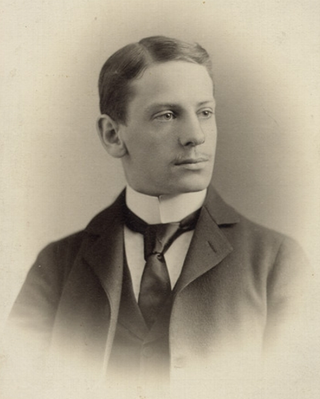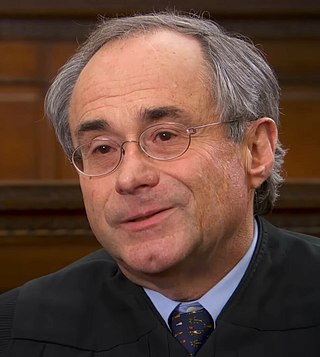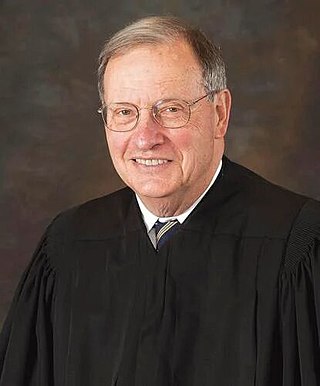
The Politics of Benin take place in the framework of a presidential representative democratic republic, wherein the President of Benin is both head of state and head of government, and of a multi-party system. Executive power is exercised by the government. Legislative power is vested in both the government and the legislature. The Judiciary is independent of the executive and the legislature. The current political system is derived from the 1990 Constitution of Benin and the subsequent transition to democracy in 1991. The Economist Intelligence Unit rated Benin a "hybrid regime" in 2022.

Robert Taschereau was a lawyer who became the 11th Chief Justice of Canada and who briefly served as the Administrator of the Government of Canada following the death of Governor General of Canada Georges Vanier in 1967.

Émile Derlin Zinsou was a Beninese politician and physician who was the President of Dahomey from 17 July 1968 until 10 December 1969, supported by the military regime that took power in 1967. Zinsou was present at the signing of the treaty that formed the African Union on 12 July 2000 in Togo.
Paul E. Pfeifer is an American jurist. He served in both houses of the Ohio General Assembly as a member of the Ohio Republican party and was most recently an associate justice of the Supreme Court of Ohio.

The president of Benin is both head of state and head of government in Benin. The Cabinet of Benin is under the authority of the President, and serves to advise and help formulate strategies. It also liaises with ministries and other government institutions.
Sir Harry Talbot Gibbs was Chief Justice of the High Court of Australia from 1981 to 1987 after serving as a member of the High Court between 1970 and 1981. He was known as one of Australia's leading federalist judges although he presided over the High Court when decisions such as Koowarta v Bjelke-Petersen in 1982 and Commonwealth v Tasmania expanded the powers of the Commonwealth at the expense of the states. Gibbs dissented from the majority verdict in both cases. On 3 August 2012, the Supreme Court of Queensland Library opened the Sir Harry Gibbs Legal Heritage Centre. It is the only legal heritage museum of its kind in Queensland and features a permanent exhibition dedicated to the life and legacy of Sir Harry Gibbs.

George Harrold Carswell was a United States circuit judge of the United States Court of Appeals for the Fifth Circuit and a United States district judge of the United States District Court for the Northern District of Florida. He was also an unsuccessful nominee to the United States Supreme Court in 1970.

James Burton Loken is a United States circuit judge of the United States Court of Appeals for the Eighth Circuit since 1990.

George Z. Singal is a senior United States district judge of the United States District Court for the District of Maine and also serves as a Judge on the United States Foreign Intelligence Surveillance Court.
Herbert L. Meschke was an American politician and judge.
Joseph Houessou Gnonlonfoun is a Beninese politician and diplomat.
President Richard Nixon entered office in 1969 with Chief Justice Earl Warren having announced his retirement from the Supreme Court of the United States the previous year. Nixon appointed Warren E. Burger to replace Earl Warren, and during his time in office appointed three other members of the Supreme Court: Associate Justices Harry Blackmun, Lewis F. Powell, and William Rehnquist. Nixon also nominated Clement Haynsworth and G. Harrold Carswell for the vacancy that was ultimately filled by Blackmun, but the nominations were rejected by the United States Senate. Nixon's failed Supreme Court nominations were the first since Herbert Hoover's nomination of John J. Parker was rejected by the Senate.

Joseph A. Diclerico Jr. was a United States district judge of the United States District Court for the District of New Hampshire.
Hans Hugo Klein is a German politician. He was a representative of the German Christian Democratic Union from 1983 to 1996 and he a justice of the Federal Constitutional Court.
Dr. Domingo Alaba John Obende is a businessman, a graduate of Yaba Trade Centre, University of Benin and University of East London Business School, holder of Bsc Public Admin, MBA Public Service and was elected Senator for Edo North Senatorial District, in Edo State, Nigeria, in the 9 April 2011 elections. He ran on the Action Congress of Nigeria platform now All Progressives Congress (APC) platform. He was a member of the 7th Senate (2011-2015).

With the advice and consent of the United States Senate, the president of the United States appoints the members of the Supreme Court of the United States, which is the highest court of the federal judiciary of the United States. Following his victory in the 2020 presidential election, Democrat Joe Biden took office as president on January 20, 2021. During the 2020 Democratic primary campaign, Biden pledged to appoint a Black woman to the Supreme Court, although unlike his opponent, Donald Trump, Biden did not release a specific list of potential nominees during the 2020 general election campaign.

The Definitive Constitution of the Kingdom of Burundi, sometimes called the "independence constitution", was the constitution of the independent Kingdom of Burundi from its promulgation in 1962 until its suspension in 1966.

Thurgood Marshall was nominated to serve as an associate justice of the Supreme Court of the United States by U.S. President Lyndon B. Johnson on June 13, 1967 to fill the seat being vacated by Tom C. Clark. Per the Constitution of the United States, the nomination was subject to the advice and consent of the United States Senate, which holds the determinant power to confirm or reject nominations to the U.S. Supreme Court. Marshall was confirmed by the U.S. Senate in a 69–11 vote on August 30, 1967, becoming the first African American member of the Court, and the court's first non-white justice.











